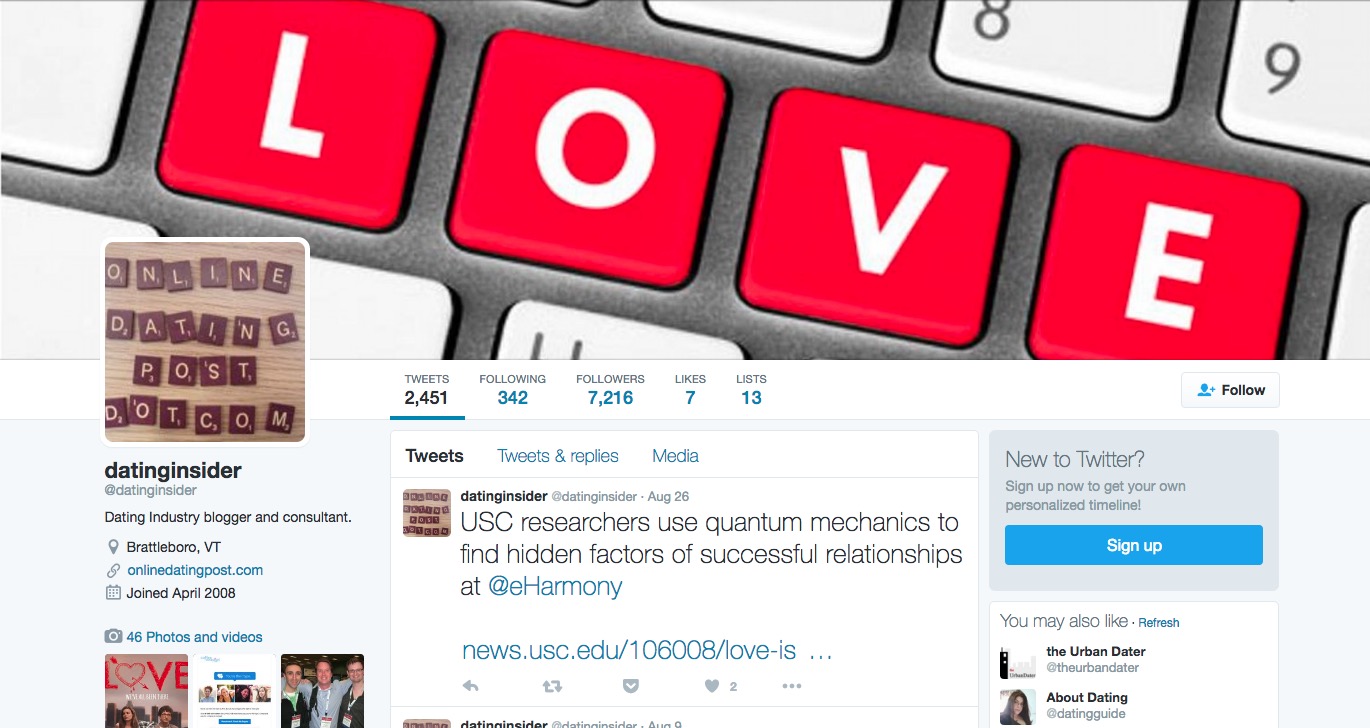Online dating is an inefficient endeavor. The majority of the time it’s a time-sucking experience full of expensive dinners, mind-numbingly boring conversation, failed expectations and disappointment.
And then there is the down side.
I read with interest the study People Are Experience Goods: Improve Online Dating With Virtual Dates. The study was authored by Dan Ariely, who keeps popping up when dating is mentioned in academic circles, Jeanna Frost, who I met with a few years ago when the system that acts as the basis for the study was developed and Michael Norton at Harvard Business School.
I’ve quoted a few of the more interesting passages, be sure to download the entire study to view the data in context.
We suggest that online dating frequently fails to meet user expectations because people, unlike many commodities available for purchase online, are experience goods: Daters wish to screen potential romantic partners by experiential attributes (such as sense of humor or rapport), but online dating Web sites force them to screen by searchable attributes (such as income or religion).
(survey) Participants reported spending an average of 5.2 hours per week searching through profiles (using the searchable attributes available such as age, income, and education) and another 6.7 hours writing and responding to e-mails, all for a payoff of just 1.8 hours of offline interactions.
Finally, we introduce and beta test the Virtual Date, offering potential dating partners the opportunity to acquire experiential information by exploring a virtual environment in interactions analogous to real first dates (such as going to a museum), an online intervention that led to greater liking after offline meetings.
They are right on the money in regards to the online dating industry short-changing singles by not providing them with information (experiential attributes), instead relying on searchable attributes.
We suggest that the failure of online dating sites to live up to user expectations is due in part to a fundamental gap between the kinds of information people both want and need to determine whether someone is a good romantic match and the kind of information available on online dating profiles.
Online dating follows an information-processing consumer model of choice in which each option has a set of features (e.g., height, religion, hobbies) from which consumers must create an overall impression, analogous to attempting to predict the flavor of a packaged food based on its nutritional information.
I’m glad to see more academics getting involved with the process of improving online dating. I hope it won’t be as difficult as I expect to translate their research into dating site functionality.

